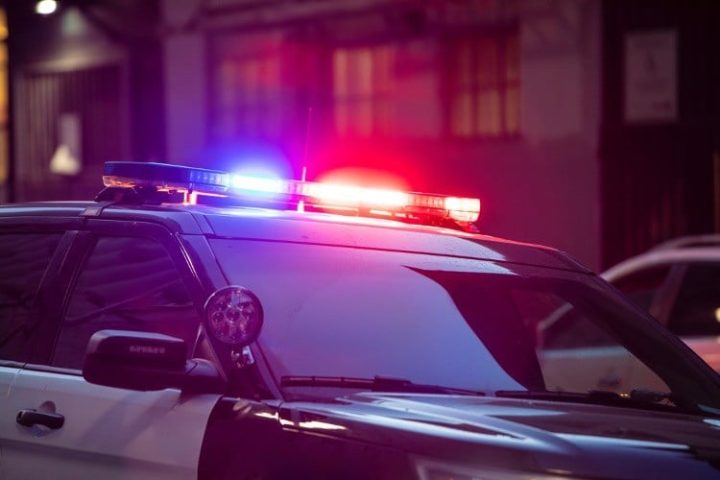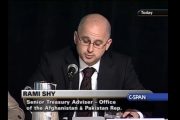
Portland police are having a difficult time filling a recently revived specialty unit focused on gun violence amid a dramatic increase in shootings and murders in the city, an issue the bureau blamed on a range of reasons, including budget and unit cuts to police, and demoralization of police officers.
The Gun Violence Reduction Team (GVRT) was shut down by Portland Mayor Ted Wheeler after the Portland City Council voted to cut $15 million from the police budget and eliminate 84 sworn positions last June, amid a Black Lives Matter protests calling to “defund the police.”
“I am hearing loudly and clearly from demonstrators that they want fundamental reform. I am hearing loudly and clearly from demonstrators that they want us to completely reimagine the way that we think about public safety in our community. And I believe these reforms, combined with the resources that I’ve proposed we send out into the community, I believe those things work together to live up to the promise of that reimagination,” Wheeler said a year ago.
The GVRT that was axed by Wheeler was originally formed as the Gang Enforcement Team (GET) before the city relaunched the unit in 2019 to address all gun violence. Amid the “racial justice” protests, it was discovered that “like many gang units,” GET had a “lengthy history of discriminatory enforcement,” as it was put in The Appeal, which noted that a 2016 analysis of the Portland Police Bureau’s gang database found that a whopping 81 percent of those in it were people of color, and in 2017, 55.6 percent of people stopped by GET officers were black — an apparently alarmingly “disproportionate” number in a city that is only six-percent black. In a report published in March 2018, the city auditor criticized the GET for its “shoddy” data collection, concluding that the unit “cannot analyze or explain the overrepresentation of African Americans in its stops.” “At the end of the day, they have a horrible conviction rate,” said Portland City Commissioner Jo Ann Hardesty, who has been pushing the city to defund the program.
But things didn’t work out the way the Democrat mayor intended. “Reimagined” police did not lead to the well-being of Portlanders. On the contrary, following the June 2020 “reform,” Portland’s homicide rate rose 800 percent over the year, as estimated by the National Fraternal Order of Police. According to the most recent data from the FBI, the total crime rate in Portland is 5,748 crimes per 100,000 people. That’s 132-percent higher than the national rate.
The police, meanwhile, were seeing a massive exodus of personnel. In 31 exit interview statements published by The Oregonian, the employees who turned in their badges or retired did not mince words when describing their reasons for getting out.
“The community shows zero support. The city council are raging idiots, in addition to being stupid. Additionally, the mayor and council ignore actual facts on crime and policing in favor of radical leftist and anarchists fantasy. What’s worse is ppb [Portland Police Bureau] command (lt. and above) is arrogantly incompetent and cowardly,” one retiring detective wrote.
Seeing a crime surge, Mayor Wheeler in March 2021 has requested two million dollars in emergency funding so the police department can actually address the violence. The Oregonian reported that Wheeler made the announcement alongside religious and community leaders, who urged city officials to take immediate action to prevent more people from dying in shootings, particularly young black people, who have been most affected by the violence.
In an April decision, city leaders approved a Focused Intervention Team (FIT), previously GVRT, but the approval did not come with any additional funding or manpower for the police bureau.
The Wall Street Journal reports that since 14 job openings for police officers were announced in May, only four people have applied, and none have yet been assigned.
Portland officers say such positions, once considered prestigious, are now less-desirable because of the “racist” image surrounding the job. The new unit has its own citizen-advisory board, instituted after the old unit was criticized by city leaders for “racial profiling.” The board is watching officers to ensure they don’t engage in possibly “racist” policing and arrests. If the officer arrests a suspect who is not white, it raises questions and puts the officer under scrutiny. In addition to that, such peculiar requirements as the “ability to fight systemic racism” specified in the job description help little to attract potential recruits.
“They’re demonizing and vilifying you, and then they want to put you in a unit where you’re under an even bigger microscope,” Daryl Turner, leader of the union that represents Portland’s officers, told the Journal.
Portland Police Chief Chuck Lovell told KPTV that he’s not sure how he’s going to fill the remaining positions on the new anti-gun violence team.
“I’m not 100 percent sure yet where those officers will come from,” Lovell said. “We’re to the point now, staffing-wise, where being able to do this means greatly impacting our ability to do something else.”




